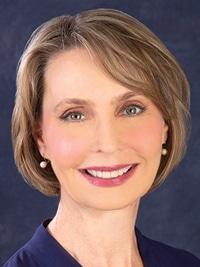View from the CMO office
March 2023—If you’ve read my prior columns, you know I am a strong advocate for pathologists stepping into leadership roles both within and outside the clinical laboratory. Our training gives us unique advantages as we serve in executive positions in health care, where our holistic view of medicine allows us to engage substantively on a broad range of issues.
But what does that look like in the real world? I took on my first role as a hospital’s chief medical officer nearly two years ago and in some cases I’ve been surprised by how my day-to-day responsibilities differ from what I expected. Some of those surprises have been pleasant and some have not. Through it all, though, these experiences have reinforced my belief that the training we get as pathologists makes us especially well suited to leadership roles.
My favorite thing about this job has been the opportunity to do a lot of creative problem-solving. Pathology trains us to deal with complex problems by thinking critically and objectively. We have an eye on the entirety of modern clinical medicine. Sometimes the medical staff is surprised at how well versed I am in different specialties and that I am able to offer real clinical insights into all parts of the hospital. But that wouldn’t come as a surprise to any other pathologist—it’s what we are trained to do.
I also spend quite a bit of time on conflict resolution. Dealing with physicians who behave badly is one of the most frustrating things I do. When conflicts go awry between physicians, between physicians and nurses, or physicians and other stakeholders, I am sometimes asked to intercede. At the root of most of these situations is a lingering tolerance in the health care profession for a certain lack of civility. It’s a shame because in our line of work we need the highest level of kindness to each other and to our patients. In these situations, it is often my responsibility to help folks see the others’ perspective in order to reach some kind of satisfactory and sustainable resolution. I have learned to incorporate mindfulness meditation and exercise into my personal routine to help me model equanimity during these conflicts, because inserting my own emotions has the potential to make a bad situation even worse.

Dr. Volk
These kinds of conflicts are less familiar among pathologists. In my current job, I have never had to deal with a conflict between pathologists and clinical laboratory scientists. These teams tend to work extremely well together and have a high level of respect for each other. The same collaborative nature that keeps our labs relatively conflict-free can also serve us well in helping to address conflicts that arise among other members of the hospital team.
Unfortunately, when there are issues with physician behavior, it encourages health care executives to route around the problem. They want to work with people who are collaborative and cooperative, not the stereotypical cranky surgeon or unapproachable specialist. Worst of all, these tensions can feed into the negative perception that physicians are not interested in quality. This is another significant part of my job: encouraging doctors to engage in peer review to show that we are all committed to the highest-quality care for our patients.
 CAP TODAY Pathology/Laboratory Medicine/Laboratory Management
CAP TODAY Pathology/Laboratory Medicine/Laboratory Management
